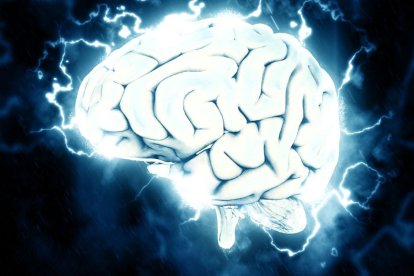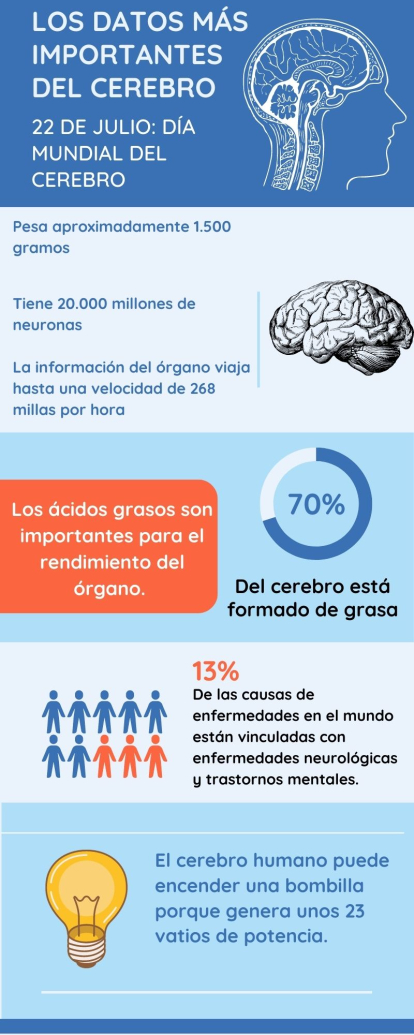World Brain Day: the most curious facts about one of the most important organs of the body
Some 13% of the world's diseases are linked to neurological problems and mental disorders.

Día Mundial del cerebro: las curiosidades del órgano
The human brain is a complex structure that has never ceased to surprise the scientists who have studied it for centuries. As science and technology advance, both allow for more comprehensive research to be developed and more details to be known about the brain and how it works.
The human brain has a volume of approximately 82 cubic inches and a weight of about 3.3 pounds. It is an organ that is formed by the two hemispheres covered by the cerebral cortex and contains a total of about 20 billion neurons. Experts detail that some specific groups of these neurons, working together, give us the ability to reason. They also allow us to experience feelings and analyze the things that happen on a daily basis. Organ information travels up to a speed of 268 mph.
The Northwestern Medicine medical research center explains that 70% of the human brain is made up of fat. That is, it is the fattiest organ in the human body, but those fatty acids are important for brain performance.

Another curious fact is that brain development is complete at approximately 25 years of age. There is a popular myth that humans only use 10% of the brain. "Neurologists confirm that the brain is always active," emphasize the Northwestern Medicine experts.
Similarly, the human brain can light a light bulb because it generates about 23 watts of power.
And although the brain itself doesn't feel pain, there are diseases that can affect it, which is why it is important to take care of. This is the reason that led the World Federation of Neurology to call for July 22 to be declared World Brain Day. The intention is to raise awareness about its potential risks and diseases. The organization estimates that 13% of the causes of disease worldwide are linked to neurological diseases and mental disorders.
"The main diseases affecting the brain are strokes, neurodegenerative diseases - such as Parkinson's or Alzheimer's - epilepsy, migraine and multiple sclerosis. Neuromuscular diseases also cause a high burden of disability," says the World Federation of Neurology.
RECOMMENDATION





















